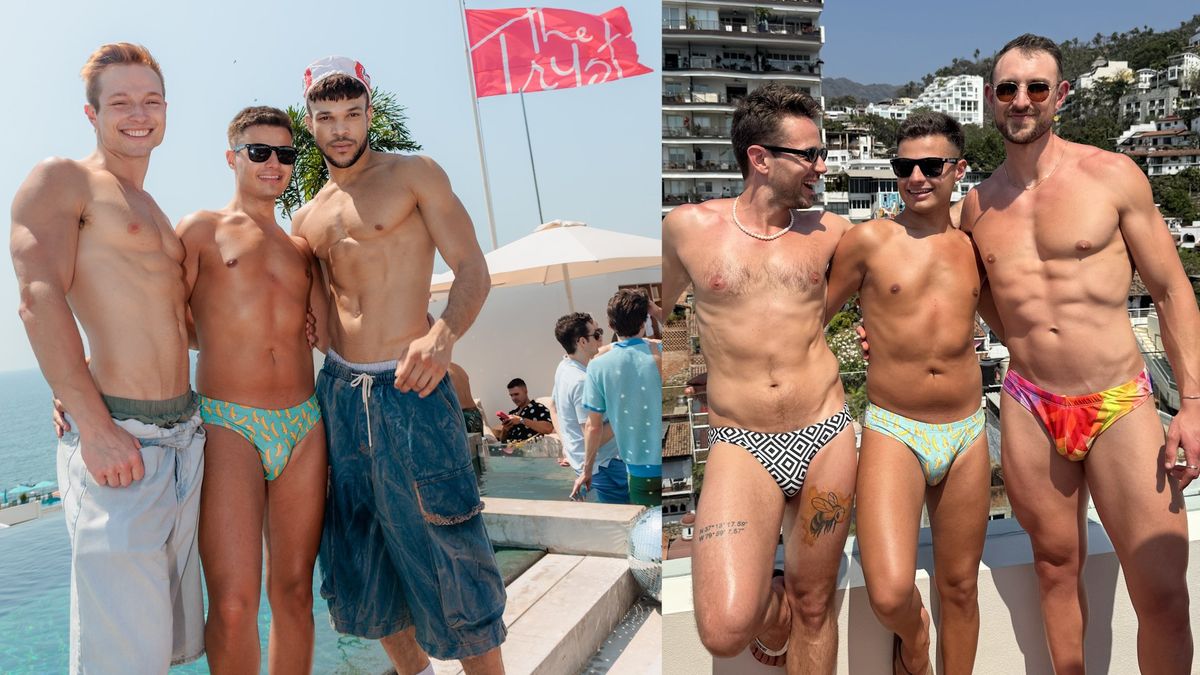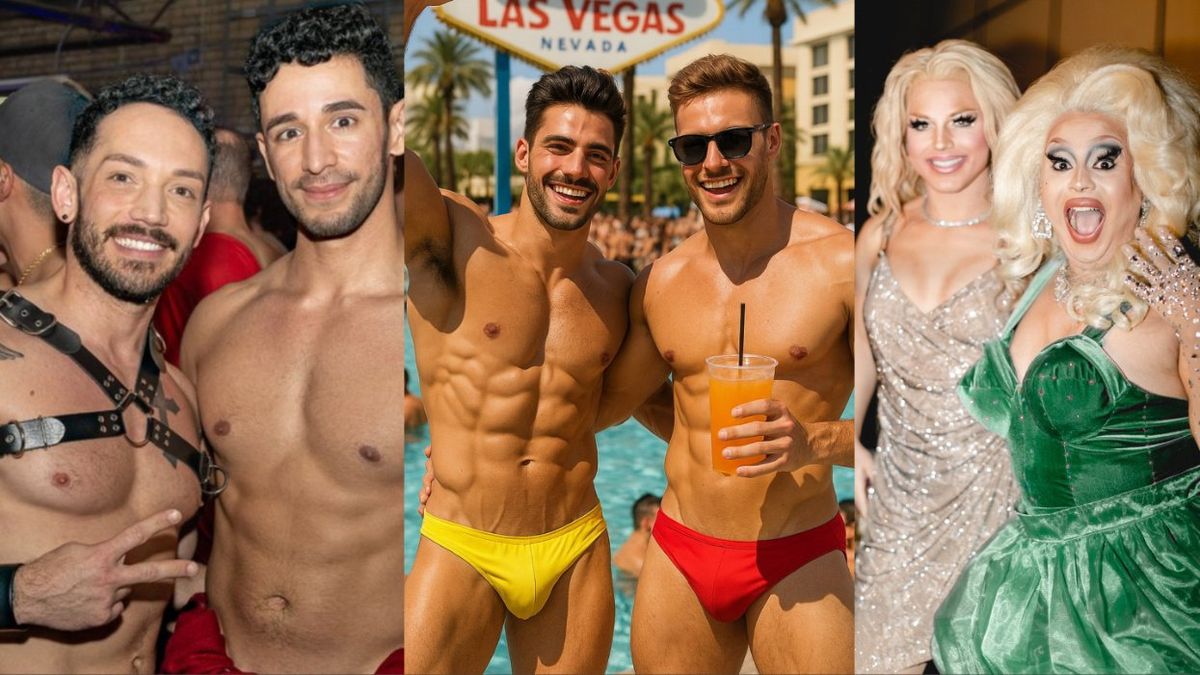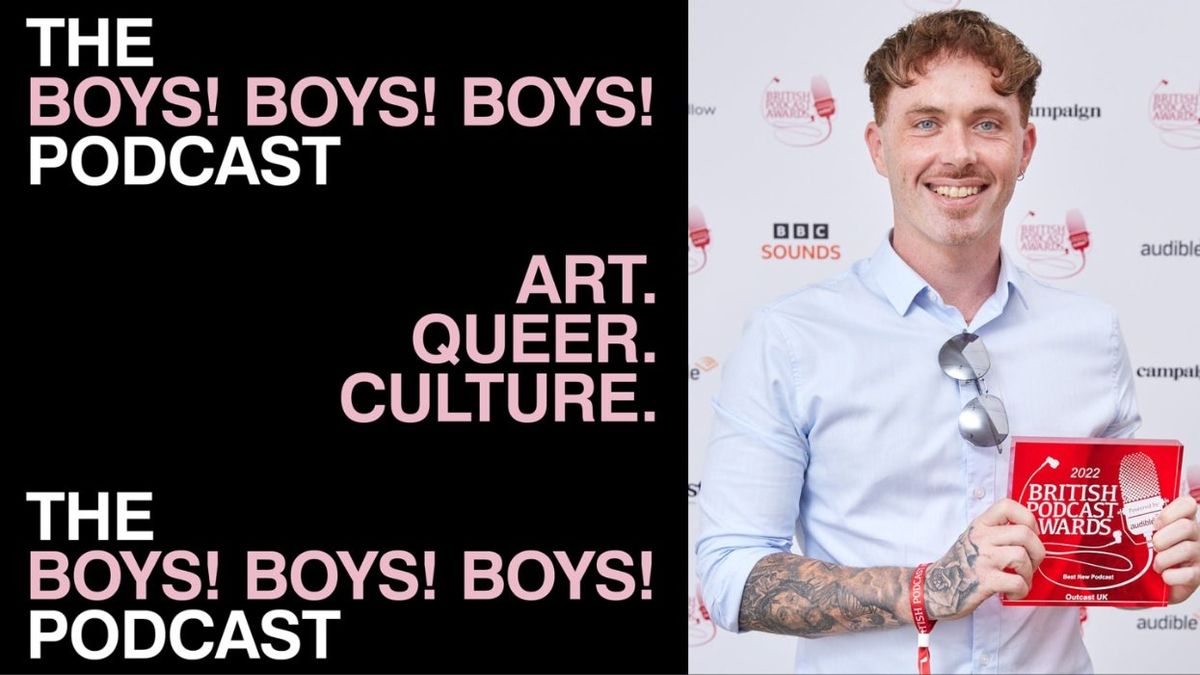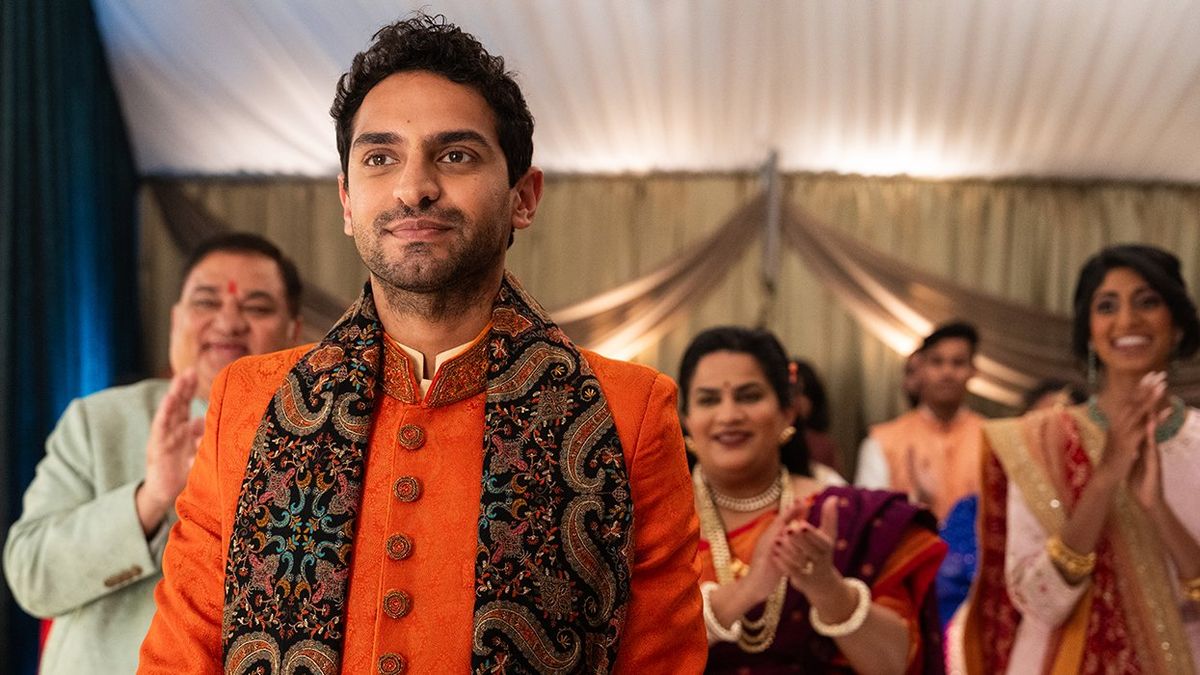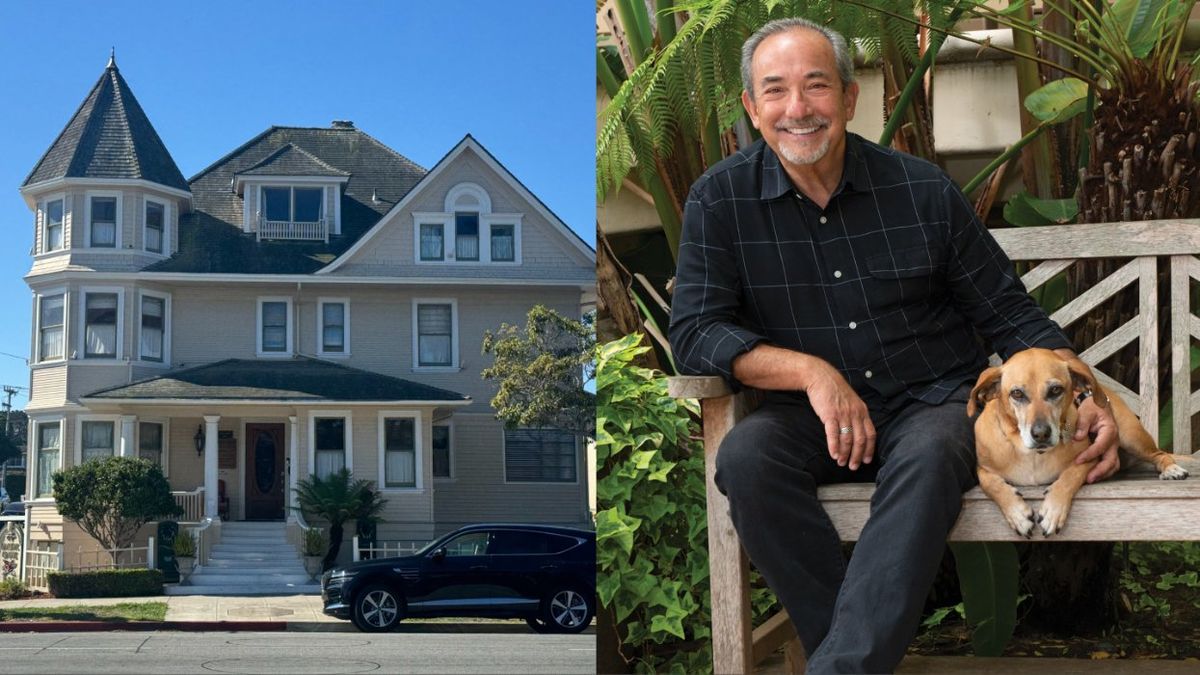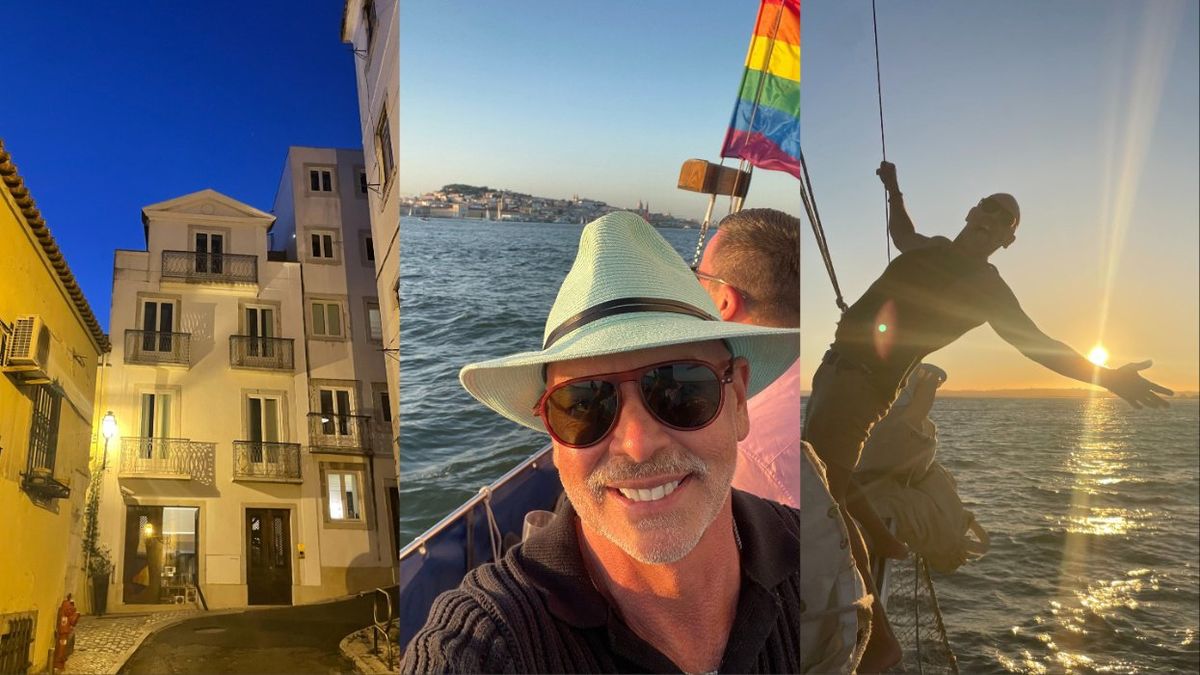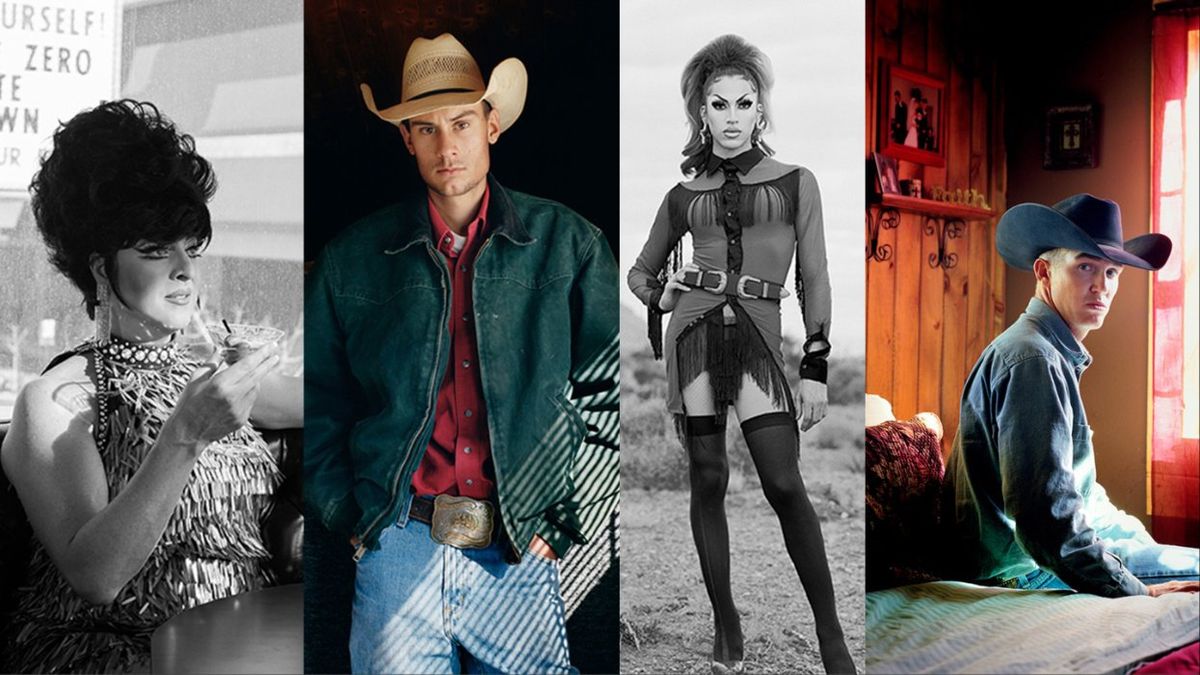From Left: Malcolm Gets, Jerry Dixon, Mario Cantone, Matt McGrath in 'Steve'
“I just don’t feel gay anymore,” John Benjamin Hickey’s character Alan says in Peter Parnell’s new play, Dada Woof Papa Hot. “Not in the way I used to feel.”
The line comes during a pivotal scene when Alan, a husband and father of a toddler, is having an intimate conversation with a younger gay man, Jason, also a husband and a father, in his daughter’s room. Jason asks if it’s because he got everything he always wanted. “Yeah, I guess, but being like everybody else isn’t exactly what I wanted, either,” he responds.
That’s not the first hint that we’re not in the gay play land of yore. But it’s certainly the hammer that nails that theme down firmly into place and caused me to squirm in my seat.
Over the years, I’ve watched lots of gay plays and interviewed hundreds of people about them—although most times the playwrights, directors, and actors always insisted: “These are not gay plays!” The message was that they were for “everyone,” meaning they didn’t want straight audiences to feel like they couldn’t relate to the characters being portrayed. Since most of their audiences were composed of gay men, however, the gay plays did indeed cater to their base—which means they usually cast young, attractive actors, and there had to be some sort of bare-chested scene, or most likely, nudity.
But the two “gay plays” that aren’t ostensibly “gay plays” being produced concurrently in New York City—Dada Woof Papa Hot and Steve—seem to signal a sea change. Now we’re going to tell stories about middle age and monogamy. So, that means plays that are just as conventional (and boring) as most straight, upper middle-class plays about aging and affairs. These plays really are for everyone: with many straight men and women in the audience taking pleasure in gay men's need to be just like them.
The title of Dada Woof Papa Hot is a too-cute reminder of a child’s first words that Alan and his husband Rob (actor Patrick Breen, who himself has acted in many pivotal gay plays over the years), privately joke is, when put together “what every gay dad wants to hear,” but knows that they are too scared to feel. It’s almost as if Larry Kramer got his wish, when he had Ned scream “stop having sex” in The Normal Heart. The gay men in both these new plays are mostly neutered. The semi-happily married and partnered couples have no time for sex, they’re too busy raising their toddlers, so they bequeath sexy romps in the dunes or late-night trysts to a younger generation.
Perhaps it’s just a sign of the times. In the early ‘90s, gay plays were focused on survival. Still reeling from millions of deaths, men were trying to figure out how to form bonds—as friends, lovers, citizens of a world that rejected them. We had Terrence McNally’s Love Valour Compassion! And Larry Kramer’s The Destiny of Me, the companion play to The Normal Heart. And Paul Rudnick’s Jeffrey. And many more. None of these people or places made any sense to me, since I was growing up in small towns in the South, far from the sophisticated gay New Yorkers portrayed in these stories. But these plays, these gay men’s stories, heavily influenced me as a young person. It’s why I have trepidation for the young gay men who go to see these plays, with their heavy moralistic messages about monogamy and how to create a life in a world where marriage equality appears to be the norm for most Americans.
With its barrage of pop culture witticisms and musical theater references, the gayer of the two plays is definitely Mark Gerrard’s Steve. Even the name play — characters include the couples Steven and Stephen, a trainer named Steve and a waiter named Esteban — harkens back to that Steel Magnolias line that all gay men are named Mark, Rick, or Steve. At least in Gerrard’s play, being directed by Cynthia Nixon for the New Group, we get a little more nuance. None of the men are legally married, we actually get the idea that the men, although in their forties, are still virile and able to get it up since they are sexting and screwing (albeit offstage). But the idea of an “open relationship” or even the hint at an “affair,” a word that has only resonated with hetero coupling up until now, is seen as a major violation of social mores and men must be punished.
In a way, Steve made me think back to one of my favorite AIDS-era plays, Paul Rudnick’s comedy Jeffrey. It and the 1995 movie starring Steven Weber, Michael T. Weiss, Patrick Stewart, and Bryan Batt, have been mostly forgotten, but it seems like a natural antecedent to Steve, including having its own single-name title. In Jeffrey, the titular character is freaking out about dating when an accident during casual sex could be a death sentence—so he decides to stop. Whereas it had a chorus boy from CATS who would die of AIDS (played so spectacularly by Batt in the movie), here the washed-up actor is a stay-at-home dad who has an irascible lesbian friend who is dying of some unnamed cancer. So quotidian in its melodrama it hurts.
It’s not that I have anything against plays that are telling a particular story of the time. Last year, Terrence McNally’s Mothers and Sons tread similar territory: with a man who had survived the AIDS battle and had since found happiness with a younger mate, who had no apparent issues with being a husband and a dad. The sentimental play brought tears to my eyes—partly because it made me feel the hurt of my own deep issues around family, acceptance, and fears about what it means to be a gay man at this moment in time. It was as if McNally, who had given voice to a generation of gay men, was updating his own mission, welcoming a new era, with new problems and complexities.
Luckily, we have playwrights who aren’t aping the themes of storytellers with the same tired tropes. A much more vital and dynamic narrative being told is Taylor Mac’s new play Hir, also Off-Broadway nearby in New York at Playwrights Horizons, and by a queer man. Known for subverting staging conventions, Mac has crafted a more traditional proscenium play that's also a living room family drama, but in this one, we get a kooky mother (played with intensity by Kristine Nielsen) with a transgender son, a hormonally subverted husband and father, and a son who can’t stop from retching. In Mac’s play, a sort of update of a surreal Christopher Durang play, maternal instincts are plundered and the patriarchal American ideal is negated. I cheered on the bizarre scenario, although also difficult to stomach, with glee.
Even the malevolent foreboding of Stephen Karam’s The Humans (by a gay playwright, but not a "gay play"), about a family trapped in a reality much darker than a horror flick, offers a much more nuanced portrait, with a lesbian daughter who is not happy in love or trying to make her own family. Although it left me feeling unease, it left me feeling something.
I later realized why these two new plays by Mac and Karam affected me more profoundly. Both are about grown children and their dysfunctional familes. We feel their dashed dreams evoked from working-class aspirations. So perhaps it’s to be expected that Hir and The Humans feel much more vital and dangerous—since they are on broken dreams, rather than superficial aspirations of the comfortable upper middle class.
John Benjamin Hickey (left) and Alex Hurt in 'Dada Woof Papa Hot' | Photo by Joan Marcus
Or maybe this is just sour grapes on my part. In both Steve and Dada Woof, shouldn't we be proud of the easy liberation? No one questions these gay men’s ability to parent — as still happens in so many places in the rest of America, let alone around the globe — and none of these men have to fight for legal rights or be granted special protections. None of the men dies (that's left to the magical, wisecracking lesbian in Steve). But I still feel an anxiety, a question nagging at me that I can’t let go. Rather than the nightmare of HIV and AIDS, we have the looming specter of something else: “gay divorce.”
For generations, gay men have been portrayed as extreme narcissists in plays and literature: the ultimate in self-preening egotists. In my view, having children is one of the most selfish acts available to us—making a copy of one’s genes to pass on one’s ego and DNA—yet it’s mostly been posited as the most-selfless due to the sacrifices (time, money, mental acuity) that it entails. At one point, Hickey’s Alan admits that he’s “playing the role of a father,” and I heard it elicit a grunt of acknowledgment from a man in the audience. All four of the men in Dada Woof are like gay uncles who have been left with a child and now forced play-act as fathers (and mothers for that matter), rather than discovering how this role could be subverted, refashioned in some new and radical way.
Dada Woof follows one of the “rules” of a successful gay play: It does have nudity. In one throwaway scene set on Fire Island, the young sexually active dad Jason (Alex Hurt) returns from the beach and strips down, exposing himself. But no one seems to devour is sculpted body or sex. They’re all just dads hanging out, no time for naughty thoughts of what they could or would do to pleasure themselves. These men prattle on about private schools and nannies (sorry, caregivers), storytime, and playdates.
Gay men have been the envy of many hetro men and women since they could dedicate their time, resources, and creativity to pursuing passions and accomplishing dreams that could feel forever out of reach of those conscripted into childrearing. As we see in these new plays, rather than use their creative juices to fashion new relationships and partnerships with new rules in a new millennia, it seems the gay men of the 21st century are following the well-worn pathways fashioned for generations before of jealousy and affairs. Now, they have consigned themselves to a mediocre, yet essential, role that was already being fulfilled by billions: that of fatherhood.

















